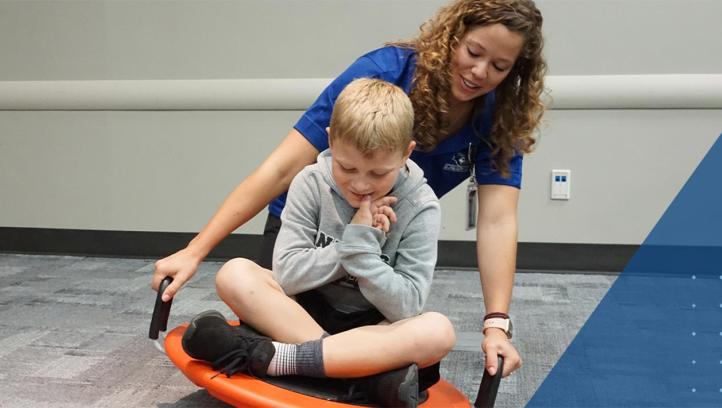
What to expect from a public health degree

As the director of Creighton University’s Master of Public Health (MPH) program and an environmental health scholar and practitioner for more than 20 years, I’ve worked with hundreds of students. They come from diverse professional backgrounds, including military, business, medicine, pharmacy, law, psychology and more.
But they always share one thing in common: the desire for a career that makes a difference in the everyday lives of ordinary people. Do you want to make a positive impact on the health and well-being of your community? Are you ready to tackle some of society’s most pressing challenges?
You can do all that and more by earning an online Master of Public Health degree.
What is public health, exactly?
Public health is inherently interdisciplinary. It intersects with many fields, including law, business, medicine and several social, environmental and biological sciences. Essentially, public health is the science of preventing disease, prolonging life and promoting personal health at the community level.
According to the American Public Health Association, the strength of a public health system rests on its capacity to effectively deliver these 10 crucial public health services:
- Assess and monitor population health
- Investigate, diagnose and address health hazards and root causes
- Communicate effectively to inform and educate
- Strengthen, support and mobilize communities and partnerships
- Create, champion and implement policies, plans and laws
- Utilize legal and regulatory actions
- Enable equitable access
- Build a diverse and skilled workforce
- Improve and innovate through evaluation, research and quality improvement
- Build and maintain a strong organizational infrastructure for public health
The ultimate goal of the public health field is to create robust systems of care that all people can access with minimal barriers. Achieving this requires passion and support from a multitude of different roles, which is why there is such a need for highly trained public health professionals in the workforce.
What is an MPH degree?
A Master of Public Health is a professional graduate degree that aims to train leaders capable of promoting health in populations domestically and worldwide. MPH programs will vary based on the institution, but leading programs will meet the competencies outlined by the Council on Education for Public Health (CEPH).
The MPH program at Creighton University is CEPH accredited and requires students to complete a minimum of 42 credit hours. In order to meet the needs of busy, working adults, our program is offered fully online, with most courses offered as eight-week modules. Students who take one course each term can expect to complete the program in about two and a half years.
What do you learn in an MPH program?
This public health degree is housed within Creighton’s prestigious School of Medicine, which brings together different concepts and perspectives to provide students with a robust education. The School of Medicine is also home to our Arrupe Global Scholars Program, where MD students earn an MPH in Global Health Promotion and share coursework with our MPH students. This creates opportunities for MPH and MD students to collaborate and learn alongside one another, strengthening the interdisciplinary nature of the program.
Our online MPH program can be broken down into three parts:
1. Build a foundation in public health principles
Students will learn public health foundations and strategies for how to serve others by:
- Advocating for health education
- Solving population health issues
- Eliminating socioeconomic barriers to a healthy family
- Promoting disease control and prevention
- Improving the environment
- Containing community infections
- Developing social infrastructure to maintain and improve health
Examples of core MPH courses include:
- Social and Behavioral Aspects of Public Health
- Community-Based Participatory Research
- Ethical Issues in Population Health: A Global Perspective
- Law and Health Ethics
- Epidemiology
2. Gain integrated practice experience
After completing foundational courses, students start preparing for their practicum and complete an 8-week module to come up with plan. In the practice experience, the student may engage in assessments, policy evaluation, program evaluation, education or awareness studies.
Students work with a practicum coordinator to secure a preceptor to identify a practice site/agency and develop a master's-level project that demonstrates mastery of competencies learned in the program. Past students have been placed in health departments, hospitals, clinical settings, non-profit organizations, government agencies, American Indian reservations and more.
This experience culminates in a capstone course with a final paper. Examples of notable capstone projects include:
- Assessing Appropriateness of Non-statin Lipid Lowering Medications
- Evaluating the Feasibility of Friends for Youth Alumni Program: A Pilot Study
- Vision Examinations and Young Children: Exploring Parent Influences and the Comprehensive Eye exam
- The Undetectables (UND) Program: Evaluating the Effectiveness and Quality of the program in Achieving and Maintaining Viral Load Among Persons Infected with HIV/AIDS
3. Choose a public health concentration
The core courses detailed above will give all students a solid base to build a meaningful career in public health. Beyond that, Creighton students have the chance to customize their public health degree to fit their desired career path.
Students can choose from the following MPH specialization options:
- Health Care Ethics (HCE): Examine public health at a legislative, institutional, and ethical level with curriculum covering access to healthcare, bioethics, and healthcare reform.
- Healthcare Management (HCM): Gain leadership knowledge in strategic and program planning, resource management, and organizational leadership skills for a variety of healthcare settings.
- Global Health Promotion (GHP): Tailor health education and interventions to meet the diverse needs of a global community (from local to international).
What can you do with a public health degree?
An MPH program prepares you to raise awareness and promote best practices for public health in a variety of settings. This degree can open up career and leadership opportunities across many sectors, including government, the public sector, non-profits, health
care and private enterprises.
Examples of public health jobs include:
- Epidemiologist
- Health
- care administrator
- Environmental health scientist
- Disaster and emergency specialist
- Research coordinator
- Public policy director
- Social and community service manager
- Sanitarian
- Biostatistician
- Health educator
Get the training you need to become an agent of change
We are proud to train the public health leaders that are so desperately needed in the world today. As a Creighton MPH student, you’ll have access to expert faculty a comprehensive curriculum, hands-on projects and research opportunities that can empower you to make a lasting impact in your community and beyond.
Learn more about the Master of Public Health program today!
Dhitinut Ratnapradipa, PhD, is the Program Director in the Master of Public Health program.
















